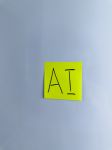
Redefining Content Creation
The advent of AI generate content has dramatically altered the landscape of digital content creation. As a pivotal member of an organization that thrives on innovation, I’ve witnessed firsthand the transformative power of AI in generating creative ideas and effective copy. AI generate content is not just a tool; it’s a partner in creativity. It streamlines workflows by automating repetitive tasks, freeing up time for more strategic thinking. By incorporating advanced algorithms, these systems can tailor content to specific audiences, ensuring more personalized and engaging experiences.
AI generate content is particularly adept at analyzing current trends and topics. This capability allows content creators to stay ahead of the curve and remain relevant in a rapidly evolving digital environment. It offers a significant advantage in terms of speed and efficiency, producing high-quality content at a fraction of the time it would take a human writer. Through natural language processing, AI generates coherent and context-aware content that resonates with its intended audience.
Innovative Applications
Incorporating AI generate content into various aspects of marketing and sales strategies opens up myriad possibilities. Social media campaigns, for instance, benefit from AI-generated captions and posts that align with brand messaging while sparking user engagement. AI generate content also finds its place in crafting compelling product descriptions, enhancing e-commerce platforms by turning mundane listings into captivating narratives.
AI generate content is also instrumental in the realm of SEO. By understanding search intent and leveraging keyword optimization, AI tools can create content that ranks highly on search engines. These tools analyze vast volumes of data to forecast what content will perform well, allowing creators to fine-tune their strategies and achieve better results. Furthermore, AI can assist in generating meta descriptions and alt tags, which are crucial components of effective SEO practices.
Challenges and Considerations
While AI generate content offers numerous benefits, it is not without its challenges. One significant concern is the potential loss of authenticity. As AI systems learn from existing content, they may inadvertently perpetuate biases or produce content that lacks originality. It’s essential to maintain a human touch, ensuring that content reflects genuine perspectives and values.
Ethical considerations also come to the forefront in AI generate content. Issues of authorship and accountability arise, as it’s crucial to determine who holds responsibility for content produced by AI. Additionally, careful oversight is necessary to ensure that AI-generated content aligns with ethical guidelines and organizational standards.
The Human Touch
Despite the prowess of AI generate content, the human element remains indispensable. Human creativity injects a unique flair and emotional depth that AI cannot replicate. By combining AI’s efficiency with human intuition, content creators can achieve a harmonious balance that leverages the strengths of both. This synergy fosters innovation and enables the creation of content that is both engaging and impactful.
In my experience, using AI generate content as a complementary tool rather than a replacement yields the best results. By overseeing AI outputs and adding personal insights or anecdotes, content creators can elevate the quality and relevance of the material. This approach ensures that the final product is not only polished but also resonates with audiences on a deeper level.
Emerging Trends
As AI technology continues to evolve, so too does its application in content creation. AI generate content is gradually advancing towards more sophisticated models capable of understanding emotions and nuances in language. This development promises more natural and relatable content that connects with users on a personal level.
Organizations are exploring new territories with AI generate content, such as interactive and immersive experiences. Virtual reality and augmented reality are becoming fertile grounds for AI to produce dynamic content that engages users in novel ways. These emerging trends hint at a future where AI-driven content is not just informative but also transformative.
Ultimately, AI generate content represents a paradigm shift in how we approach content creation. By embracing its potential while remaining mindful of its limitations, creators can harness AI to craft content that is both innovative and human-centric.

The Impact of Generative AI
Generative AI is undoubtedly AI game changing, altering the way industries operate. It facilitates content creation, provides new insights, and offers innovative solutions. These capabilities are remarkable, transforming traditional workflows. With generative AI, businesses experience increased efficiency. Tasks are completed at unprecedented speeds.
Imagine a world where creative projects are completed in days, not months. This efficiency is beyond merely accelerating processes. It also fosters creativity by freeing up valuable time. Professionals can focus on strategic decisions, leaving repetitive tasks to AI.
Reshaping Business Processes
Generative AI is not just a tool; it’s a catalyst for transformation. Organizations are rethinking their processes. AI game changing technologies allow for new business models. Enterprises can explore avenues previously unimaginable. The potential for innovation is limitless.
Companies are investing in AI to stay competitive. This investment often involves restructuring the digital backbone. Embracing AI requires a solid foundation. Many find this shift necessary for future growth. Without it, they risk falling behind.
The integration of AI into business operations is a complex journey. It demands careful planning. Companies must ensure data readiness. This involves improving data quality and governance. Only then can AI truly thrive.
Enhancing Customer Experience
The customer experience is also undergoing a revolution. AI game changing technologies personalize interactions. Businesses can tailor offerings to individual preferences. This personalization increases customer satisfaction and loyalty.
AI-driven insights help companies anticipate customer needs. Predictive analytics provide a competitive edge. This foresight enables proactive service delivery, delighting customers and cementing brand loyalty.
Implementing AI tools enhances understanding of customer behavior. These insights guide personalized engagement strategies. The result is a seamless, tailored customer journey.
Moreover, AI’s ability to streamline customer service operations is remarkable. Chatbots handle routine inquiries, freeing human agents. This allows for more impactful customer interactions.
Workforce Adaptation and Skilling
The workforce is experiencing significant changes. AI game changing tools are altering job roles. Automation handles repetitive tasks, allowing humans to focus on complex problems. Employees must upskill to remain relevant. Training programs are crucial for successful adaptation.
Organizations recognize the need for continuous learning. Investing in employee training is essential. This proactive approach benefits both the organization and its workforce. Employees equipped with AI skills contribute significantly to productivity.
While some fear job losses, AI is more about augmentation than replacement. Human creativity and strategic thinking remain irreplaceable. AI supplements these skills, making them even more powerful.
Ethical Considerations in AI Deployment
Implementing AI game changing technologies requires ethical consideration. Companies must navigate privacy issues and data security. Establishing responsible AI practices is vital. It’s important to address potential biases in AI algorithms.
Businesses are advocating for government regulation. Guidelines ensure ethical AI usage, fostering trust. Ethical AI frameworks are increasingly becoming a standard. These frameworks help manage societal impact.
Human Innovation and Creativity
Artificial intelligence has advanced rapidly. Still, it lacks the unique qualities that define human intelligence. Creativity, intuition, and emotional understanding are areas where humans excel, and AI can’t easily replicate them. Our ability to think outside the box remains unmatched. AI might assist in generating ideas, yet it often relies on existing data and patterns.
In professions where innovation is key, humans hold the advantage. Designers and artists use intuition and inspiration to create novel works. While AI can mimic styles, it struggles with the originality and emotional depth that define human art. Even in tech development, AI replace human isn’t about overshadowing human creativity but about collaborating.
Empathy and Social Interaction
AI lacks empathy, a cornerstone of human interactions. Social dynamics are complex. They rely on understanding nuances, emotions, and individual needs. AI might analyze facial expressions and sentiments, but it falls short in delivering genuine understanding.
In roles requiring emotional intelligence, like counseling or teaching, AI replace human is not feasible. These professions demand connecting, empathizing, and crafting personalized approaches. AI offers tools and insights but can’t fully substitute the human touch necessary in such contexts.
As we integrate AI into these fields, it becomes a partner rather than a replacement. It supports decision-making, enhances communication tools, and offers data-driven insights. Yet, the empathetic connection remains uniquely human.
Augmenting Human Capabilities
AI replace human often revolves around augmenting human capabilities rather than replacing them. In medical fields, AI contributes to faster diagnoses and treatment plans by analyzing vast amounts of data. However, physicians’ expertise and experience are essential to interpreting these insights.
In engineering, AI enhances productivity by automating repetitive tasks. It frees up time for engineers to focus on complex problem-solving. While AI can generate designs or simulations, the critical thinking and innovation required for breakthroughs remain primarily human domains.
Even in business, AI assists with data analysis and strategic planning. Leaders utilize AI tools to optimize operations. However, intuition and human judgment continue to play pivotal roles in decision-making processes.
AI replace human is more about synergy. When human intelligence and AI technology work hand in hand, the possibilities expand exponentially.
Challenges and Limitations
AI systems are only as good as the data they are trained on. Biases in datasets can lead to skewed outcomes, emphasizing the need for human oversight. AI replace human in critical decision-making is limited by this data dependency. Humans can adapt, learn from minimal input, and apply broader context to situations. AI requires structured data and patterns.
The ethical implications of AI must be carefully considered. As AI evolves, addressing privacy and security concerns becomes paramount. Humans must guide AI development ethically, ensuring that it serves societal needs without compromising individual rights.
Balancing automation with ethical considerations is a delicate task. As AI replace human discussions progress, integrating human values and ethics into AI frameworks is essential for responsible advancement.
Future of Work
The future holds exciting possibilities. AI replace human in certain tasks may become reality, but these are often roles that benefit from automation. Industries will still need human oversight, creativity, and judgment.
While routine tasks might be automated, creative roles will thrive. Humans will focus on strategic planning, innovation, and relationship-building. AI will handle data-driven tasks, freeing individuals to focus on what they do best.
AI replace human discussions must emphasize collaboration. By embracing AI as a partner, we can unlock its full potential. Through responsible implementation, AI will enhance, not overshadow, the value of human input.

Questions on AI Generate Content
How does AI enhance creativity in content creation?
AI isn’t just a tool; it’s a collaborator in the creative process. By automating mundane tasks, such as data analysis and trend forecasting, AI frees up time for us to focus on strategic and creative endeavors. Imagine having a colleague who excels at every analytical task, leaving you to indulge in the creative brainstorming sessions that define strategic content. In practice, this means more time for crafting engaging narratives and less time bogged down in routine processes. The result is a harmonious blend of efficiency and creativity, resulting in content that is not only well-informed but also highly engaging.
Have you ever experienced a situation where AI helped you unlock a new level of creativity? I’d love to hear your stories!
What are common misconceptions about AI generate content?
One common misconception is that AI generate content lacks authenticity and creativity. It’s true that AI outputs are built on existing data, but this doesn’t strip content of originality. Instead, AI provides a robust foundation from which human creativity can flourish. Another misconception is that AI will replace human writers entirely. In reality, AI complements human capabilities, handling the heavy lifting of data-driven tasks while humans add the necessary creative and emotional layers. To put it in perspective, think of AI as a master sous-chef, prepping the ingredients perfectly, allowing the chef—you—to create a culinary masterpiece.
Have you found any AI tools to be surprisingly creative in their own right? Share your thoughts in the comments!
How does AI address the challenges of bias and ethics in content creation?
Bias in AI generate content often stems from the data fed into these systems. Addressing this involves curating diverse datasets and constantly monitoring outputs for inadvertent perpetuation of stereotypes. As for ethics, clear guidelines and human oversight are crucial. We must remain accountable for the content AI produces under our tutelage, ensuring it’s both responsible and aligns with our organizational values. For instance, integrating feedback loops where AI outputs are reviewed and refined by human creators can mitigate both ethical and bias-related concerns.
Have you encountered ethical dilemmas in your use of AI? How do you address them?
How can organizations leverage AI to enhance the customer experience?
AI’s ability to personalize content at scale is a game changer in enhancing customer experience. By analyzing user behavior and preferences, AI crafts tailored interactions that resonate on an individual level. Imagine a service where recommendations feel like they were made by a close friend who knows your tastes intimately. This personal touch increases customer satisfaction and loyalty, transforming routine interactions into delightful experiences. AI-driven insights also enable proactive service delivery, anticipating needs before they are even voiced.
What personalized experiences have you enjoyed recently, possibly powered by AI?
How does AI affect the future of work and human capabilities?
AI is reshaping the future of work by augmenting human capabilities rather than replacing them. It handles tasks that require processing large data sets, freeing humans to tackle complex problems that demand creativity and strategic thinking. Consider a physician using AI to analyze medical data: it speeds up diagnosis but still relies on the doctor’s expertise for treatment decisions. In this way, AI enhances our productivity and helps us focus on areas where human intuition and creativity are indispensable.
How do you see AI augmenting your professional skills in the near future?
What are the ethical considerations in AI deployment across industries?
Deploying AI ethically involves navigating issues such as privacy, data security, and algorithmic bias. Companies must ensure transparency in AI processes and advocate for guidelines that promote responsible usage. Establishing ethical frameworks helps manage the societal impact, fostering trust among users. For instance, industries like finance and healthcare require stringent controls to prevent misuse and protect sensitive information. It’s about balancing innovation with responsibility, ensuring that technology serves society ethically and effectively.
Do you think there are areas where current ethical guidelines for AI could be improved? I’d love to hear your insights!
#### Resources Section
Useful Resources for AI Content Generation
- National Institute of Standards and Technology (NIST) – A renowned organization within the U.S. Department of Commerce, NIST develops standards that guide technological innovations, including AI development and deployment.
- National Artificial Intelligence Initiative – An authoritative source for AI policies and strategic frameworks in the United States, fostering AI research and promoting responsible use across industries.
- MIT Sloan Management Review – Offers insights and research from the Massachusetts Institute of Technology on how AI is reshaping management and operational strategies across various sectors.
- American Institute of Physics (AIP) – Provides resources and research papers on the advancements and ethical considerations in AI, emphasizing its impact on scientific fields.
- U.S. Department of Education – Engages in developing innovative educational strategies, including the integration of AI in learning processes to enhance educational outcomes.
#srtbvalre h1, #srtbvalre h2, #srtbvalre h3, #srtbvalre h4, #srtbvalre h5, #srtbvalre h6 {clear:none;}#srtbvalre img {min-width:100%} @media (min-width: 992px) {#srtbvalre img {min-width:0;}}#srtbvalre .container.justify-content-center {margin-bottom:40px;}#srtbvalre .justify-content-left {margin-top:0px;margin-bottom:0px;}

Leave a Reply